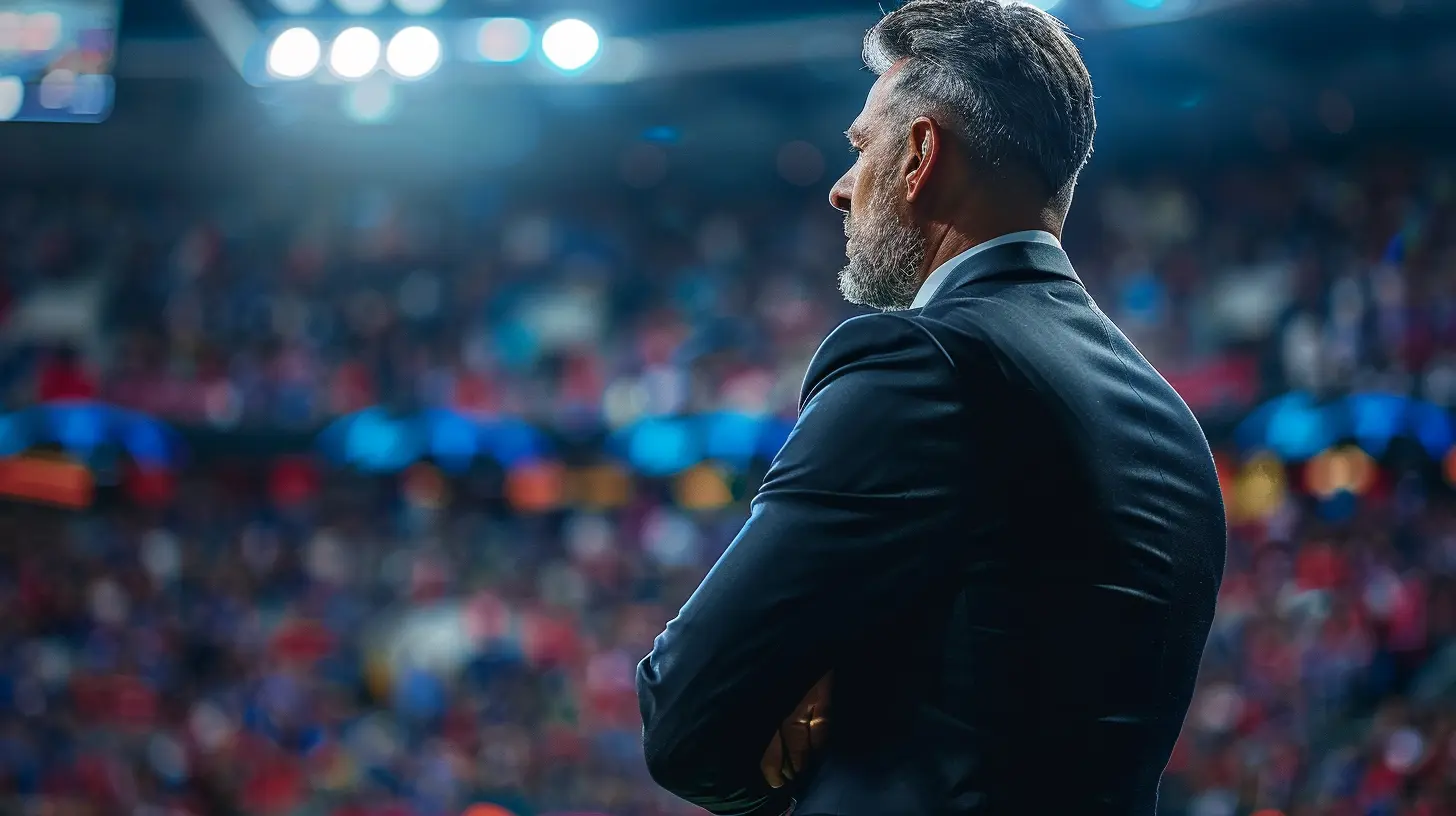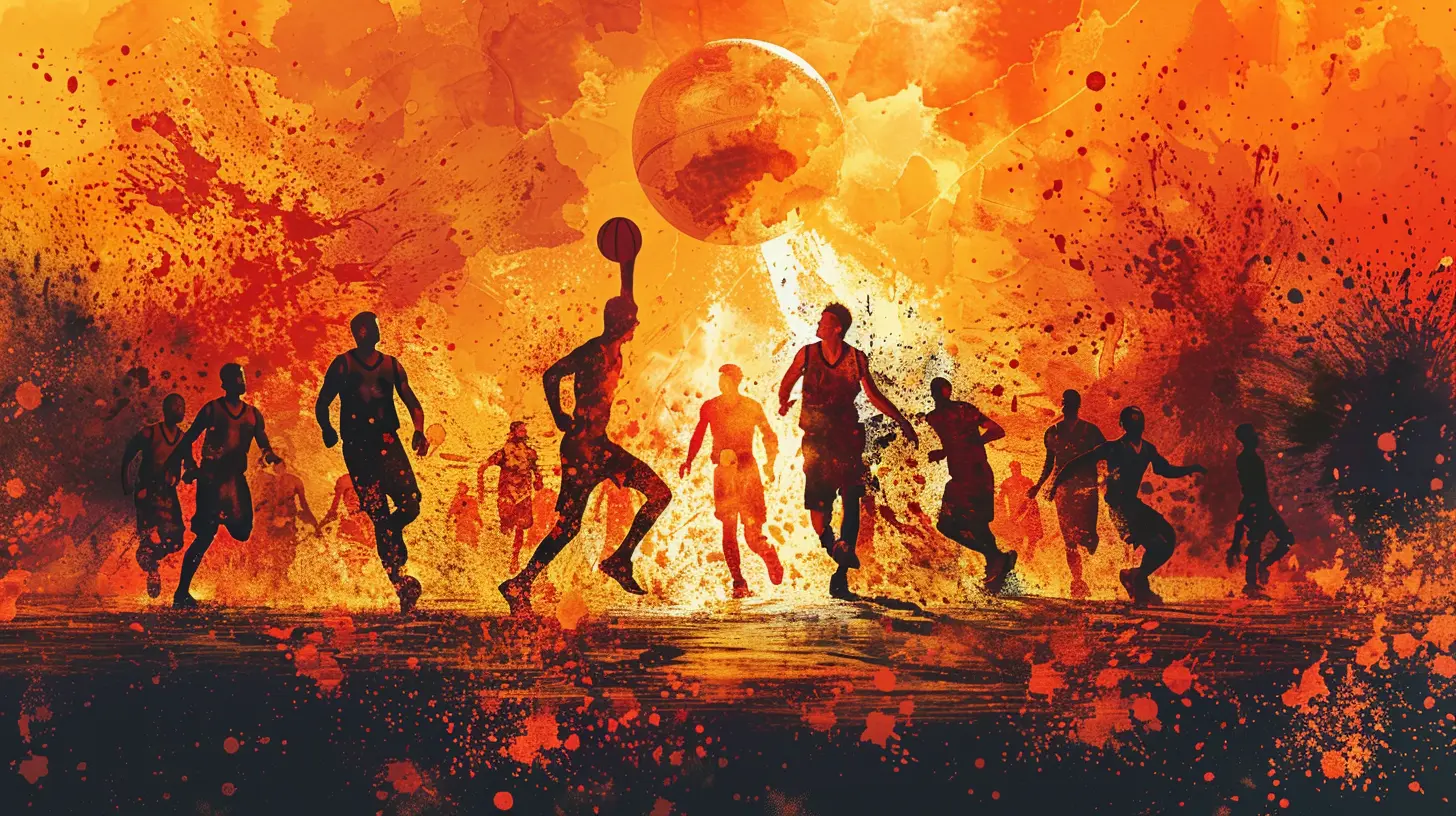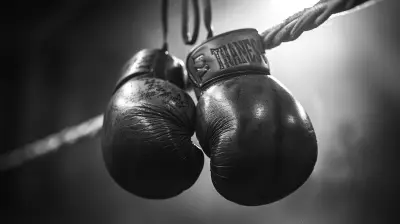The Role of Coaches in Developing Professional Sports Dynasties
20 September 2025
Let’s be real. Behind every legendary sports dynasty—the kind that dominates the league, eats championships for breakfast, and haunts opponents’ dreams—you’ll find one very important piece of the puzzle: a mastermind coach. Now, that coach might not always have the flash or get the front-page headlines, but make no mistake, they’re the ones stirring the pot, drawing up the plays, and occasionally tossing clipboards in dramatic fashion.
So how exactly do coaches mold scrappy squads into once-in-a-generation powerhouses? Grab your clipboard, throw on your headset, and let’s dive into the wildly underrated, often misunderstood, and occasionally meme-worthy world of coaching dynasties.
🧠 The Brain Behind the Brawn
First off, let’s squash a common myth: coaches don’t just stand on the sidelines yelling “DEFENSE!” like over-caffeinated parrots. Nah, the great ones? They’re part psychologist, part tactician, part babysitter (looking at you, Dennis Rodman-era Phil Jackson).Great coaches think six moves ahead. They obsess over X’s and O’s, but they also decode body language, manage egos, and keep the team from imploding during long losing streaks or postgame pizza binges. They're basically the Swiss Army knives of sports.
Take Bill Belichick, for example. Hoodie? Iconic. Personality? Somewhere between a calculator and a grizzly bear. But his ability to adapt, strategize, and absolutely smother opponents is second to none. No Patriots dynasty without Bill.
🏗️ Building Cultures, Not Just Teams
You can draft talent, trade for all-stars, and sign megadeals until your bank account looks like Elon Musk’s—but if your team culture stinks, it's game over. Here’s where coaches really earn their stripes.Coaches are the architects of team identity. They decide whether a team plays with flair or grit, whether they run fast breaks or grind out possessions like a tortoise with a hangover. More importantly, they set the tone: discipline, hustle, humility, swag—whatever the recipe, the coach cooks it up.
Remember Gregg Popovich and the Spurs? The guy practically turned "boring but effective" into an art form. No reality TV drama, just laser-focused teamwork, fundamentals, and the fear of disappointing Coach Pop. That’s cultural engineering, baby.
🧲 The Magnetism of a Coaching Legend
Some coaches are like sports wizards. Players just want to play for them—like, badly.Why? Because legendary coaches build reputations as career-defining mentors. They unlock players' potential, challenge them without belittling them, and—if we're being honest—sometimes threaten to bench them into oblivion if they slack off.
Look at Phil Jackson. The Zen Master. He somehow got Michael Jordan and Kobe Bryant—the two biggest alpha dogs in basketball history—to trust him, listen to him, and win under him. That’s not luck, that’s leadership charisma dialed up to 11.
🧬 Consistency Is the Secret Sauce
A sports dynasty isn’t a one-hit wonder. It’s not about winning a single title and riding off into the sunset like a spaghetti western hero. Nope. Dynasties dominate for years. Championships, plural. Consistent greatness. And that doesn’t happen unless the coaching remains rock solid.Dynastic coaches know how to reload instead of rebuild. They lose a star? No panic. They bench a vet? The system stays the same. It's like baking grandma's cookies—doesn’t matter who buys the flour, the taste stays perfect.
Whether it's Nick Saban with Alabama or Joe Torre during the Yankees' glory days, consistent coaching equals consistent glory. It’s math… emotional, adrenaline-filled math.
🧪 Strategy: The Chess Match that Never Ends
Coaching isn’t just yelling motivational clichés and calling timeouts at exactly the wrong moment. It’s war. Not literal war, of course, but a mental chess match with game tape and Gatorade.Here’s where elite coaches shine. They adjust on the fly, exploit weaknesses, and summon schemes that look like they were dreamt up by sports-playing aliens.
Think Andy Reid drawing up beautifully weird plays with names like “Ferris Wheel Right” and “Corndog.” Is it backyard football? Maybe. Does it work? Absolutely. Strategy, baby—it’s as fun as it is ruthless.
🔨 Handling Pressure Without Imploding
You try standing on the sidelines of a high-stakes playoff game with an entire city screaming at your face through flat-screen TVs. Sound fun?Coaches live that pressure every game. Managing players is hard enough, but managing expectations from fans, media, and billionaire owners? You need nerves of steel and a poker face that would make James Bond jealous.
The best coaches stay cool under fire. They never panic (at least not in public), and they pass that zen energy onto their players. Calm leaders build calm teams—which, coincidentally, win a lot more when stuff hits the fan.
🌱 Developing Young Talent (Because Rookies Be Wild)
Dynasties aren’t built on aging superstars trying to relive their glory days. Nope. They’re built on a steady pipeline of young, hungry talent—players who don’t know what they can’t do yet.Enter the coach, part mentor, part drill sergeant. Coaches mold raw potential into future MVPs, giving structure to chaos and showing rookies when to shoot, when to pass, and when to just tie their dang shoes.
Some of the best players in history credit their coaches for everything. Without a guiding hand, raw talent can fizzle like a soda left open overnight. With it? Boom—hall of famers.
🤝 Managing Egos: Herding Cats in Matching Jerseys
Let’s get something straight: star athletes have egos bigger than most zip codes. And that’s okay. Confidence is part of the package. But managing those egos? That’s an art form.Successful coaches know when to stroke egos and when to check them like luggage. They keep stars happy, motivated, and just humble enough to play nice with others. Not easy when you’ve got millionaires bickering over minutes and Instagram followers.
Dynasties collapse when egos explode. Coaches are the pressure valves.
💬 Communication: The Invisible MVP
You’d be amazed how many elite coaches are also elite communicators. Not because they’re smooth talkers, but because they say the right thing at the right time.Sometimes it’s a fiery halftime speech. Other times it’s a quiet word on the bench. Then there’s the occasional epic postgame diss that'll end up on SportsCenter for a week.
But the key is clarity. Great coaches make sure every player knows their role, their value, and the bigger purpose of the team. Confusion kills chemistry; communication makes it sing like a boy band from 1999.
📈 Evolving with the Game
Sports change. Fast. A strategy that worked in 1998 might get you laughed off the court today. That means coaches can’t afford to be dinosaurs clinging to VHS tapes.The best dynasty leaders evolve. They embrace analytics, adjust their game plans, and aren’t afraid to admit when they’re wrong (well… occasionally).
Look at Steve Kerr. He took the Warriors from decent to dynasty by blending old-school know-how with modern-day ball movement and small-ball wizardry. Adapt or get left in the dust.
💡 The Unsung Genius
Here’s the thing: coaches rarely get the spotlight they deserve. Sure, they might get a Gatorade shower if they’re lucky, but the highlight reels? The commercials? The shoe deals? That’s all player-land.But real sports fans know that behind every unstoppable dynasty is a coach pulling the strings, managing chaos like a conductor with a whistle. And honestly? They like it that way.
Because coaching isn’t about fame. It’s about legacy. It’s about taking a group of wild, wildly talented humans and transforming them into a cohesive, unstoppable force.
So next time your team wins it all, don’t forget to tip your cap to the captain on the sidelines. They’re the real MVP behind the MVPs.
🏁 Final Whistle
At the end of the day, dynasties aren’t accidents. They’re forged in locker rooms, on practice fields, in late-night film sessions, and inside the minds of some incredibly savvy coaches. While the players light up the scoreboard, the coach is often the one writing the script.So whether it's Vince Lombardi, Pat Riley, Alex Ferguson, or the next big name on the come-up—you can bet your foam finger that they’re more than just a sideline fixture. They’re dynasty builders, plain and simple.
And if you're dreaming of building the next great sports empire? Better start studying the playbook… and maybe pick up a whistle.
all images in this post were generated using AI tools
Category:
Professional SportsAuthor:

Onyx Frye
Discussion
rate this article
1 comments
Natasha McKee
Coaches are the architects of greatness in sports dynasties, blending strategy, mentorship, and psychology. Their ability to cultivate talent, instill discipline, and foster teamwork not only shapes individual athletes but also creates enduring legacies that transcend generations.
October 10, 2025 at 12:40 PM

Onyx Frye
Absolutely! Coaches play a crucial role in shaping not only athletes but also the overall culture of a winning team, ensuring their legacies endure through strategic guidance and strong mentorship.


